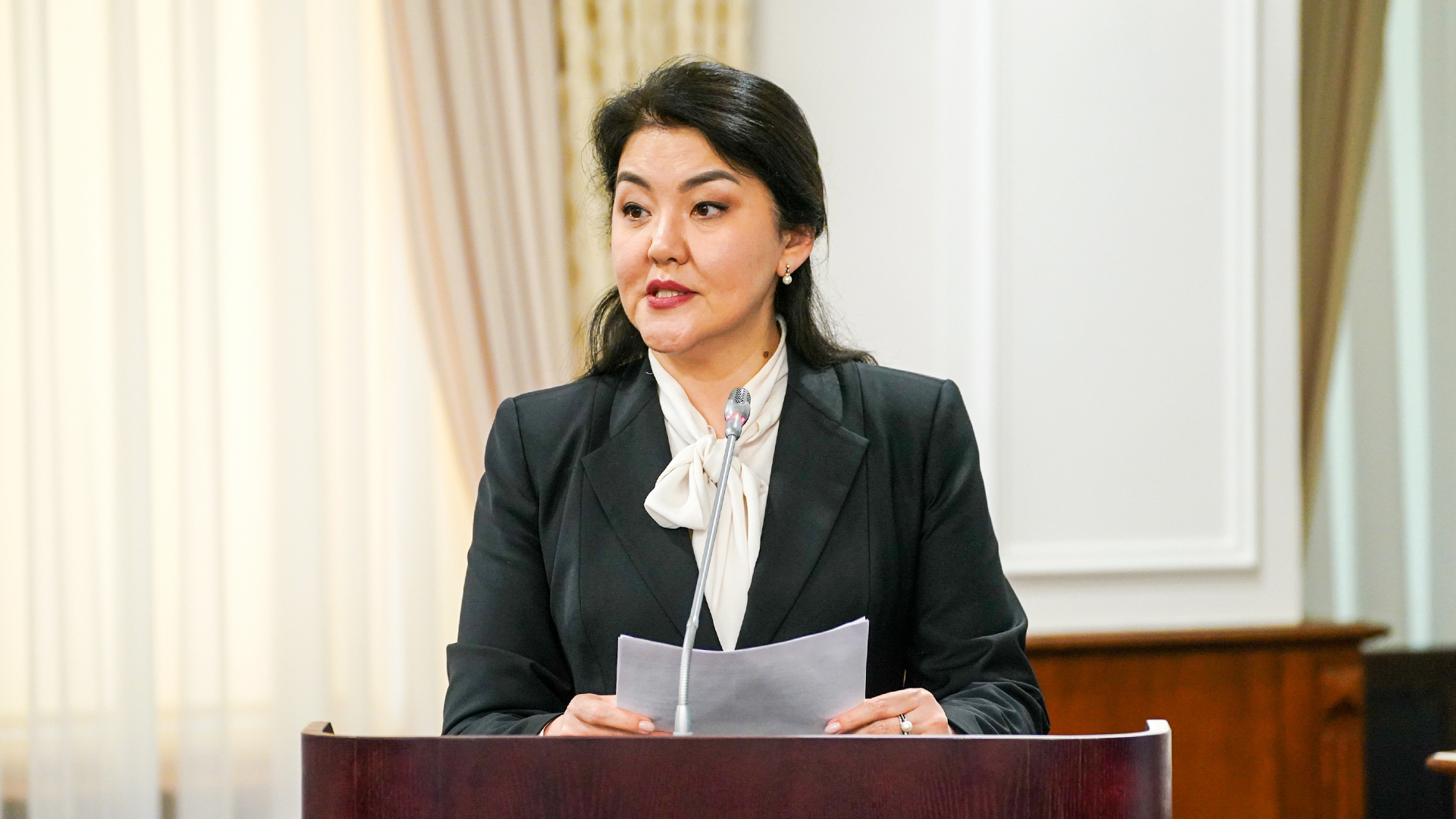04 April 2023, 13:36
 Today in Kazakhstan, 6,187 public health facilities, including 492 hospitals and 5,695 primary health care facilities, provide medical care to the population. These figures were announced by Acting Minister of Healthcarecare Azhar Giniyat.
Today in Kazakhstan, 6,187 public health facilities, including 492 hospitals and 5,695 primary health care facilities, provide medical care to the population. These figures were announced by Acting Minister of Healthcarecare Azhar Giniyat.
The level of wear and tear in the buildings of medical organisations is 44.7%. At the same time, most of the existing hospitals do not meet the requirements of international standards.
"Work is now under way to modernize rural health care. The approved National Project provides for the construction of 655 primary health care facilities, as well as the modernisation of 32 multidisciplinary central district hospitals by equipping, overhauling and reconstructing them. This, in turn, will ensure the availability of medical care for the rural population," Giniyat said.
In addition, there are plans to build modern hospitals in the regions - 2 scientific-innovative multi-profile clinics in the cities of Astana and Almaty, 8 multi-profile hospitals under PPP, 12 perinatal centres and a network of oncology centres. At the same time, the construction of 3 district polyclinics in Almaty and Kostanay regions, 2 multi-profile hospitals in Kyzylorda and Pavlodar regions, a central district hospital in Mangystau region and a blood centre in Kyzylorda city is continuing in the regions.
The acting Minister of Healthcare then turned to the issue of human resources policy. According to the Healthcare Ministry, there are about 267,000 medical workers in the healthcare system today, including more than 78,000 doctors and 188,800 paramedical workers.
"The health system's staffing requirement is 7,621, of which 3,916 are doctors and 3,705 are nurses," she informed.
The Ministry of Healthcare is carrying out a number of activities:
In addition, measures will be continued to create conditions for the continuous professional development of medical staff, the introduction of a "mentoring institute", the provision of additional payments of lift allowances (MIO from own funds), the construction of residential houses and dormitories, the provision of rental housing, etc.
The Ministry of Healthcare of Kazakhstan has developed a draft law "On amendments and additions to some legislative acts of the Republic of Kazakhstan on health issues". The draft law proposes provisions to humanise the criminal offences for the improper performance of professional duties by a medical or pharmaceutical worker and to reduce the sanctions under Article 317 of the Criminal Code of the Republic of Kazakhstan.
"The proposed model of insurance of professional liability of medical workers and humanization of penalties for improper performance of professional duties is primarily aimed at protecting the rights of citizens, compensation for harm to health and life while receiving medical services, as well as the legal and financial protection of health workers, reducing the outflow of highly skilled professionals from the industry, whose activities are related to the social risk of helping the patient," Azhar Giniyat explained.
The proportion of citizens leading a healthy lifestyle was 23.2% at the end of 2022. During the coronavirus pandemic, the budget for promoting a healthy lifestyle was cut fourfold compared to 2019 and currently stands at 512 million tenge.
This has led to a 10-fold decrease in the implementation of WHR activities and a population awareness rate of up to 12%.
In order to raise public awareness of healthy lifestyles and the prevention of non-communicable diseases, the "Healthy Nation" national project is being implemented with a separate focus on increasing the proportion of the population leading a healthy lifestyle and developing mass sports, including measures to reduce consumption of tobacco products, alcohol, obesity, etc.
In 2023, more than 1.4 million healthy lifestyle activities will be carried out among the population. The implementation of the WHO Healthy Cities, Healthy Schools and Healthy Universities projects to reduce non-communicable diseases will continue.
There are 191 youth health centres nationwide. Efforts are being made to increase the coverage of adolescents and young people with MCH services. The clinical and diagnostic services of the MCH centres have been expanded from 57 to 119 services. A standard for the organization of reproductive and mental health care for adolescents aged 10 to 18 and young persons was approved in the current year.
At the same time, a national STEPS survey will be conducted to study the level of tobacco use among the population and risk factors for non-communicable diseases, using the WHO methodology.
At the same time, an interdepartmental roadmap for strengthening health promotion and health literacy for 2023-2025 has been developed and is undergoing the approval procedure with the government authorities. As a result of the measures taken, the proportion of citizens leading a healthy lifestyle is expected to rise to 30 per cent by 2025.
Stay updated about the events of the Prime minister and the Government of Kazakhstan - subscribe to the official Telegram channel
Subscribe